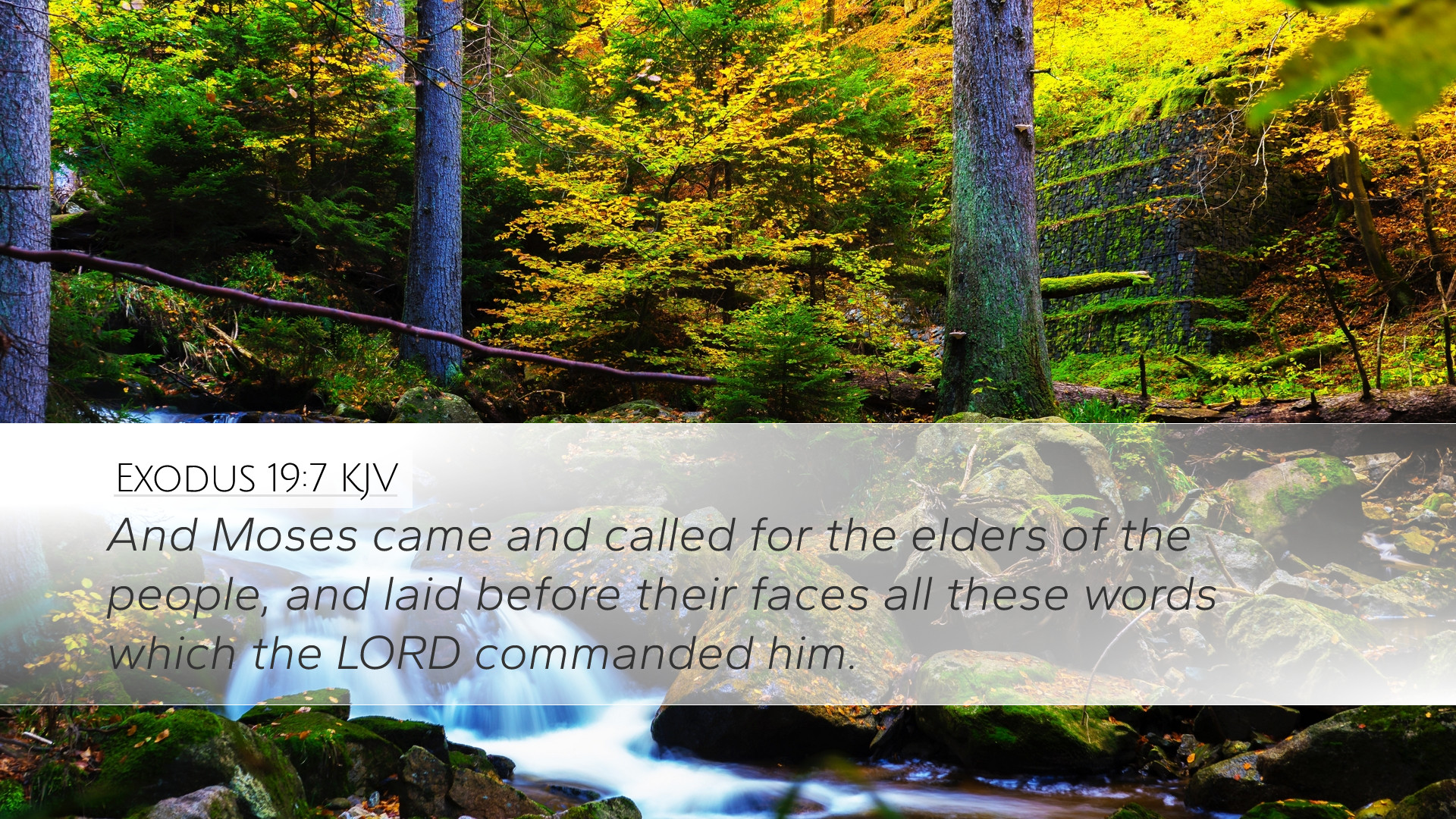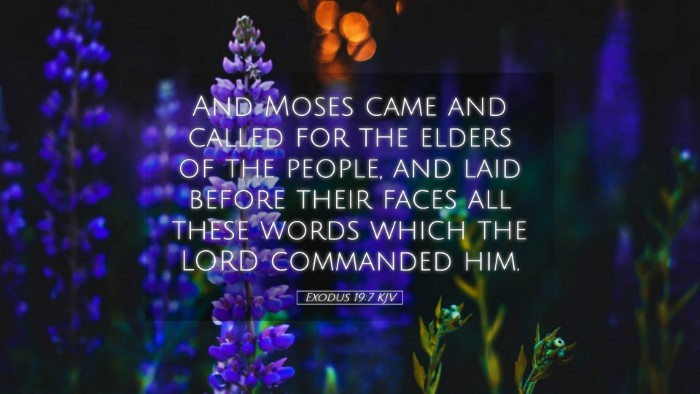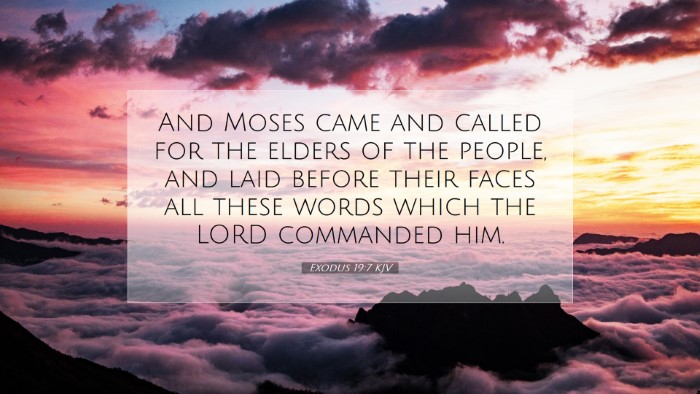Exodus 19:7 - Commentary and Insights
Verse Reference: Exodus 19:7 - "So Moses came and called for the elders of the people, and laid before them all these words which the LORD commanded him."
Contextual Overview
In this passage, Moses acts as the mediator between God and the people of Israel. After the momentous events of their deliverance from Egypt, they find themselves at Mount Sinai, where God will establish His covenant with them. This moment is pivotal in Israel’s history and identity as a nation dedicated to Yahweh.
Commentary Insights
Matthew Henry Commentary
Matthew Henry emphasizes the significance of Moses’ role in conveying God's messages to the people. He notes that Moses acts as a prophet and a leader, ensuring that the Israelites understand the gravity and importance of the covenant God intends to establish. The act of calling the elders represents a structured approach to governance and communication, reflecting the order that God desires in His people. Henry comments on the need for divine revelation to be made known through human instruments, and the responsibility that falls on leaders to be faithful in this task.
Albert Barnes' Notes on the Bible
Albert Barnes points out that this call to the elders signifies a consultative approach in leadership. He highlights the importance of communal engagement—the elders representing the people serve as a bridge linking God’s direct communication to the collective consciousness of Israel. Barnes elaborates on the implications of the people's response to God’s commands, noting that obedience is central to receiving God's blessings. He concludes that this action reflects the seriousness with which God expects His commands to be received and the readiness of the leaders to present these instructions.
Adam Clarke’s Commentary
Adam Clarke offers insights into the dynamics of leadership and community. He examines the specific mention of the "elders" and suggests that this reflects the foundational structure of Israelite society. Clarke discusses the nature of God's commands and the importance of faithfully relaying them. He poses reflective questions on the attitude of the people when they receive such divine directives. Clarke ultimately asserts that these passages reveal God's societal model where authority is respected and properly communicated to ensure unity and adherence among the people.
Theological Implications
- Divine Communication: The passage illustrates how God communicates His will through appointed leaders, emphasizing the necessity of faithful mediators in the faith community.
- Authority and Structure: The elders play a vital role in bridging the divine-human interaction, which stresses the importance of authority and order within the church and community.
- Community Responsiveness: The readiness of the elders and the people to respond to God's commands highlights the importance of communal worship and obedience to God’s directives.
- Obedience as Covenant Requirement: This verse sets the stage for understanding obedience as a requisite for the covenant relationship established by God with Israel.
Application for Pastors and Theologians
For pastors, this passage serves as a reminder of the importance of humble leadership—being a faithful servant who leads by example and conveys God’s messages with integrity. It underlines the necessity of teaching and guiding the congregation in a way that honors God’s commands.
Theologians might explore the implications of covenant theology in this passage, analyzing how this foundational event at Sinai sets the stage for understanding God’s relationship with humanity throughout Scripture. The reflections on leadership, community, and obedience are pertinent for developing a robust understanding of the biblical narrative as it pertains to corporate worship and ethical living.
Conclusion
Exodus 19:7 serves as a profound insight into the nature of divine communication, the structure of leadership, and the community's role in responding to God’s will. By examining the insights from public domain commentaries, we can appreciate the layered meanings within this text and apply its truths to our settings today, facilitating a deeper understanding of our relationship with God as individuals and as a community.


